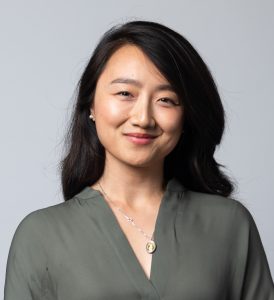Claudia Huang
 Claudia Huang, Ph.D.
Claudia Huang, Ph.D.
- Assistant Professor of Human Development
- Email: Claudia.Huang@csulb.edu
- Phone: (562) 985-5591
- Office hours for Spring 2024: Mondays 12:30-1:30pm (HDEV 470) and Wednesdays 2:00-3:00pm (HDEV 310) or by appointment. Please email Dr. Huang for an appointment.
- Office Location: LA3-105C
- Website: www.claudiachanghuang.com
Education
- Ph.D. (2019) University of California, Los Angeles, Anthropology
- M.A. (2012) Boston University, International Relations and Religion
- B.A. (2008) Boston University, Art History and Cultural Anthropology
Research Interests
I am a sociocultural anthropologist who focuses on personal identity and meaning-making among elders. I am particularly interested in how cultural norms surrounding the aging process can be altered or upended by social change. Though I conduct my primary ethnographic research in China’s Sichuan province, the theoretical implications and practical applications of my work are not limited to a single geographical area.
My current book project, titled Dancing for Their Lives: Self-Cultivation, Sociality, and Growing Old in Urban China, is a case study on a strikingly popular “dancing grannies” phenomenon that has emerged in Chinese cities in recent years. Drawing from over 18 months of ethnographic research conducted in Chengdu, the capital of Sichuan province with the generous support of the Fulbright-Hays and Confucius China Programs, I combine both macro-and micro-levels of inquiry and analysis to contextualize the phenomenon—in which millions of retired women come together in groups to dance and to socialize—into the China’s changing family structures, diminishing status of elders, and privatization of public services. Like so many others around the globe, these retirees are growing old in a world that barely resembles the one in which they were born; my work not only highlights the challenges that elders face when adapting to new realities but also investigates how elders use the new opportunities that emerge from shifting social mores to their advantage.
Teaching
- HDEV 310: Qualitative Methods in Human Development
- HDEV 357: Approaches to Adulthood Through Aging
- HDEV 403: Acquisition of Culture: Socialization in Cross-Cultural Perspectives
Recent Publications
- Huang, Claudia (2021) Becoming dama: the new old age in urban China. Journal of Aging Studies 57 (June, 2021). DOI: https://doi.org/10.1016/j.jaging.2021.100928
- Huang, Claudia (2021) “Families under (peer) pressure.” Chinese Families Upside Down: Intergenerational Conflict and Solidarity. Yunxiang Yan, ed. Brill.
- Claudia Huang (2016) “Dancing grannies” in the modern city: consumption and group formation in urban China, Asian Anthropology, 15:3, 225-241, DOI: 10.1080/1683478X.2016.1204042
Public Scholarship
- Huang, Claudia. 2019. Staging Harmony in Urban China’s Urban Dance Competitions. Anthropology News. May 10, 2019. DOI: 10.1111/AN.1159
